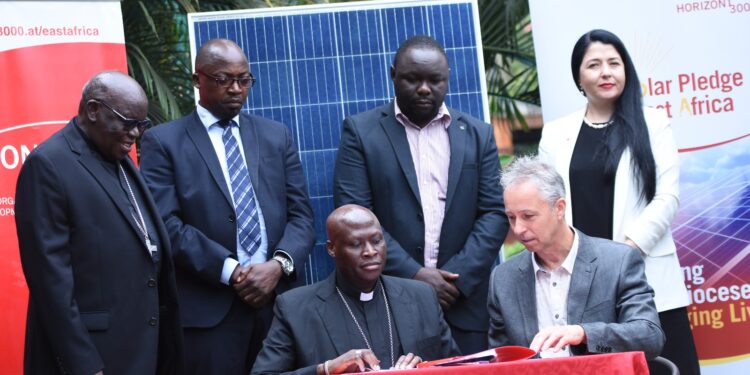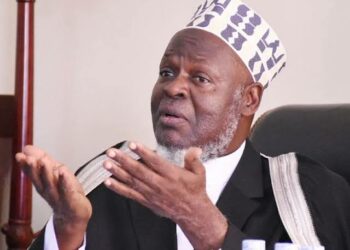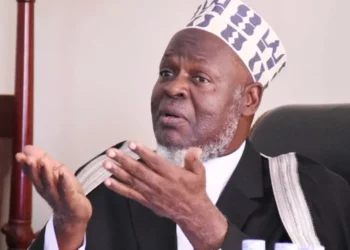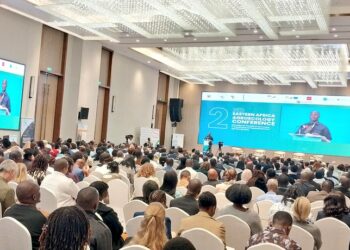HORIZONT-3000, an Austrian Organization for Development Cooperation has launched a Solar Power project dubbed ‘Solar Pledge East Africa’, to fast-track Uganda and Kenya’s commitments towards environmental conservation through the utilisation of renewable energies.
The project that will be implemented in the Catholic Dioceses of Uganda – Gulu and Kenya, Ladwor Diocese in Turkhana will target schools, hospitals and homesteads to foster development in the two countries.
Officiating at the launch of a project at Fairway Hotel in Kampala on July 4, Gulu Diocese Archbishop, John Baptist Odama revealed that for over 20 years, the Northern part of Uganda was caught in this insurgency where the government of Uganda was fighting LRA which ended in 2007 and now they are caught in the situation of the rehabilitation of this area.
“Economically, spiritually and socially the issue of solar is very fundamental for this because our area has not been fully electrified. The few areas that have power do not have it all the time. Bringing in solar will boost the area, particularly in villages, schools and health units,” he revealed.
Odama shared that empowering people through the activities of the church is prioritizing them and the church would like to see people’s lives improved vertically (spiritually) and horizontally (economically) and with this opportunity, they can ably promote each other.
According to Mr Erwin Eder, the managing director Horizont 3000, they are in the pilot phases which they intend to have in the first two years.
He shared that currently, they are doing the staffing at the piloting dioceses, and will have their technical advisors from Austria to assist in building up this project.
“We intend next year to have the first project with the technical implementation phase and then we will identify several projects. We will have a study and survey, rehabilitation of the existing renewable energy sources and also do new installations,” he said.
Mr Eder explained that at the moment, they have financing church partners and after the launch, they will make a fundraising tour in Europe, asking partners of the Catholic Church to be partners and Co-finance some of this project.
“We intend to make it a big programme but the first project is guaranteed. If we work successfully on the start, we will make it an important project for East Africa. It is necessary to come up with more renewable energy projects. Since we are a faith based NGO, we opted to work with Catholic institutions because they also run a number of hospitals, schools.”
Speaking at the event, Mr Brian Isabirye, the Commissioner-Renewable Energy at Ministry of Energy and Mineral Development, Uganda share that the solar program will be improving awareness on the climate action and energy nexus, which is a global conversation but most importantly addressing the aspect of capacity building and planning.
He explained that having a renewable energy officer at a diocese, will give a chance for the ministry of energy to pilot this that they are still struggling to put in place.
“This project is also innovative and the fact that it is going to look into partnerships will bring in religious leaders, development partners, missions and leaders that will bring us together to discuss renewable energy. We believe in partnerships because we cannot do too much if we do not partner,” he said.
Mr Isabirye revealed that the Ministry of Energy and Mineral Development has been looking at how they can leverage power in renewable energy and they appreciate the power in using religion in driving transformation.
“We see this project having a number of benefits for the country and the church. Embracing clean energy is key and having church at the Centre of this project is the right thing to do. Adopting clean energy and efficient practices around energy gives us an opportunity to support the vulnerable poor.”
Solar Energy is a low-cost intervention that enables both rural and urban communities to benefit from the energy revolution and escape poverty while at the same time conserving the environment.
It is believed that by 2030, solar energy will contribute to improving the lives of people in rural areas of Uganda and Kenya.
Do you have a story in your community or an opinion to share with us: Email us at editorial@watchdoguganda.com













